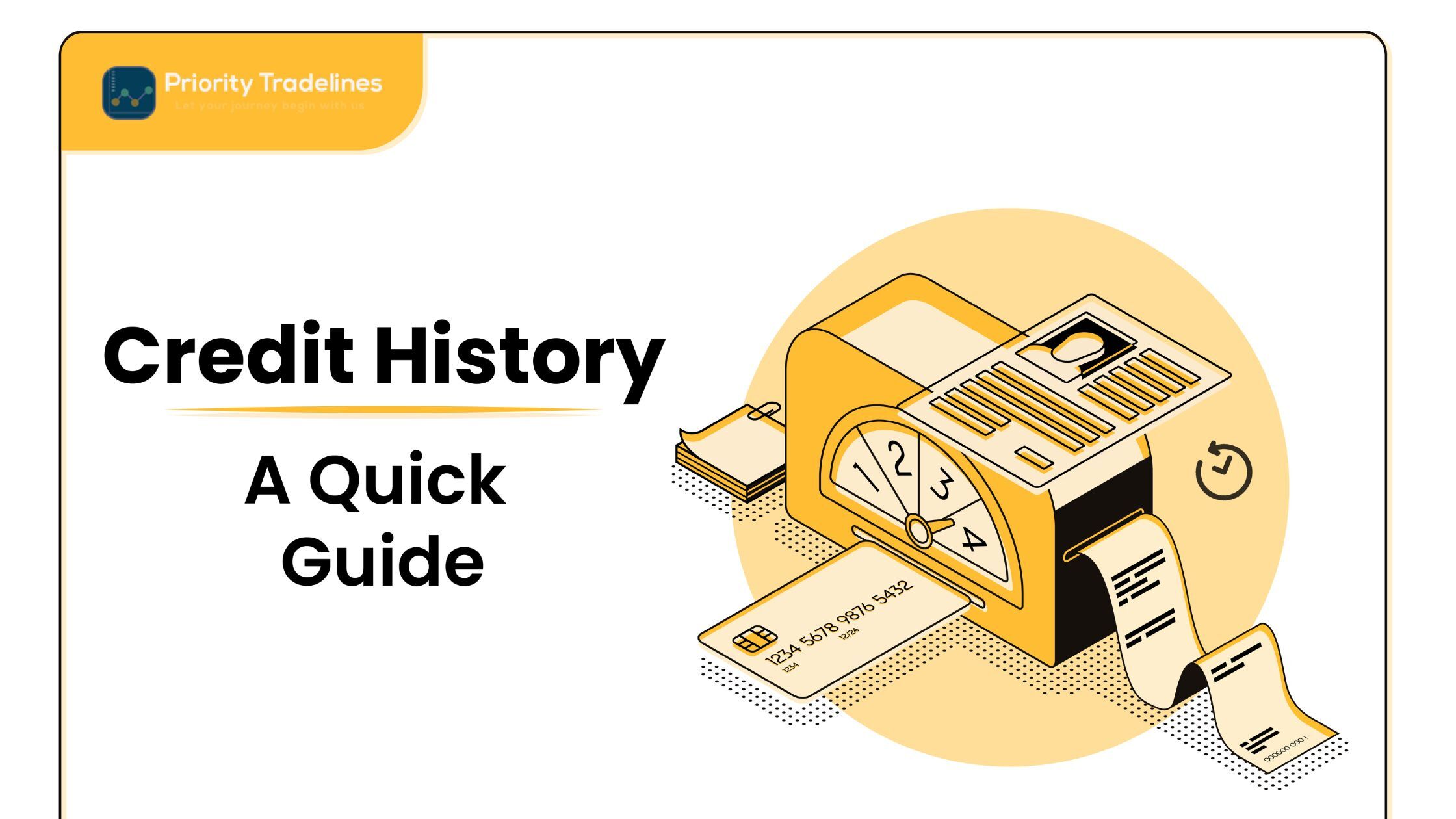In most cases, discussing one's credit history will lead to discussing the debtor's past and current financial situation. This includes data like the number of accounts a person has, how long each account has been active, and whether or not payments have been made on schedule.
But there's a lot more to learn, like how your credit history is recorded and how it impacts your score and access to credit. You can better manage your credit if you understand how these parts work together. Moreover, this post will serve to clarify some of the fundamentals.
What's your credit history?
The term "credit history" refers to a person's documented past dealings with credit and other forms of debt.
The Federal Trade Commission reports that many people's credit histories begin with an application for a loan or credit card. Lenders may share information about their customers' account activity with credit bureaus as they make payments on loans, credit cards, and other financial products and services.
The date you first established a credit card account, your current amount, and your payment history may all be reported by your credit card provider. In addition, credit bureaus like Equifax®, Experian®, and TransUnion® will include the data in your credit reports whenever they get it.
This information is then used by credit scoring models such as FICO® and VantageScore®. Potential lenders can use credit reports and ratings to gauge an individual's reliability as a borrower.
What's your credit history?
Credit reports and scores are based on your past credit behavior. However, that's not the only sector it has the ability to significantly affect financially. The Consumer Financial Protection Bureau (CFPB) notes that credit history may be a factor in the following scenarios:
- The information in your credit reports can be used by potential lenders to determine whether or not you are loan-worthy, as well as the terms of any loans you could be offered, including interest rates, credit limits, and monthly payments.
- Depending on the details, the data could be used to determine your insurance premium.
- When you apply for a rental flat, the landlord might check your credit.
- When you open up an account with a utility company, they may check your credit to see if a security deposit is necessary.
- The credit reports of potential employees may also be reviewed by employers.
What is the difference between a good credit score and a bad credit score?
Companies check your credit report to gain insight into how you handle debt. Reliable credit habits include making payments on time and keeping debt loads low. These practices can help you build a strong credit history and maintain your credit.
However, a less-than-perfect credit history could result from late payments or bankruptcy. A healthy credit usage ratio can be maintained by setting up automated payment reminders and paying bills in full every month.
How to identify that your credit score is good?
Responsible debt management, such as timely bill payment, contributes to positive credit history. Moreover, what credit scoring organizations perceive to be good scores should be noted because credit history plays a factor in credit reporting and scoring.
VantageScore recommends a score between 661 and 780 as an excellent range. In addition, a credit score between 670 and 739 is considered excellent by FICO. Nevertheless, remember that a high credit score is only indicative of a credit history that is otherwise spotless. And that financial institutions have complete discretion over lending and credit choices.
You may not be doomed to a lifetime of "poor" credit just because there are a few dings on your credit report right now. Failing to make payment may remain on your credit report for as long as seven years after it occurred. A good credit history begins with responsible credit use. Positive credit history can be established by consistently making payments on time and maintaining a small amount.
How to build a credit card score without history?
According to the CFPB, millions of Americans fall into the "credit invisible" category because they do not have enough credit information to be assigned a credit score. The target audience could include young adults, college students, or recent immigrants. Here are four strategies to begin building credit if you haven't already.
Apply for a credit card
Even though there is a wide variety of credit cards available, establishing a traditional credit history may be a prerequisite for applying for most of them. However, a secured credit card may be a good alternative if you find yourself in this position. A security deposit is required at account opening but is typically returned when the credit card issuer terminates the account. Your credit score will rise if you use the card responsibly and pay on time.
Be an Authorized user.
You can receive a credit card and use it to make purchases when you become an authorized user on someone else's account. As long as the account is utilized appropriately, the card issuer may record the account activity, allowing you to develop credit. However, if you have missed payments or other negative information, it could affect your credit score. Make sure you find out how approved users are listed by the card issuer before you create the account.
Take a credit builder loan.
In contrast to more common loans, funds from a credit-builder loan are deposited into a separate account. The lender will report your on-time loan payments to credit bureaus as you pay back the loan over a certain time frame, allowing you to build or repair your credit score. When the loan is repaid, you get the cash.
Pay your bills on time.
Regularly paying your rent on time might also help you establish a good payment history with creditors. However, that is conditional upon the payments being recorded to credit agencies. Utilities and rent payments are two examples of alternative data. Keep in mind that unfavorable information, such as late payments, might have a negative impact on your credit score.
Conclusion
Building a positive credit history takes time, effort, and prudent use. However, if you check your credit report regularly, you can monitor your progress and verify the accuracy of the data. Visit AnnualCreditReport.com once a year to acquire free copies of your credit report from each of the three main credit bureaus.



